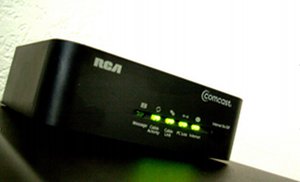Why Haven't Broadband Prices Dropped?

(Don Solo)
Ten years ago, 5% of the country had access to broadband Internet. Now over 95% of the country has access. In other technology markets, notes the authors of a new study, prices tend to drop significantly once a technology matures–but with broadband, prices since 2004 have dropped by less than 10% in most markets, if at all. So what’s going on?
The authors, Shane Greenstein and Ryan McDevitt, suggest lack of competition might be to blame:
“So if you were in such a market as a supplier, why would you initiate a price war?” Greenstein asks. With no new entries on the market, suppliers can compete by slowly increasing quality but keeping prices the same.
In this case, “quality” usually means faster download speeds, which have indeed been improving over the years. On the other hand, they point out that with the increase in high bandwidth content like video, there’s a good chance quality might suffer soon as existing networks sag under heavy traffic.
Greenstein also notes that broadband providers are making almost pure profit at this point, now that the cost of the current infrastructure build-out has mostly been recouped:
A company might spend around $100 per year to “maintain and service” the connection, but people are paying nearly that amount every other month. … “Like many observers, I expected to see prices drop by now, and I am surprised they have not.”
“Why Broadband Prices Haven’t Decreased” [Kellog School of Management via bbspot] (Thanks to Jeff!)
Want more consumer news? Visit our parent organization, Consumer Reports, for the latest on scams, recalls, and other consumer issues.

